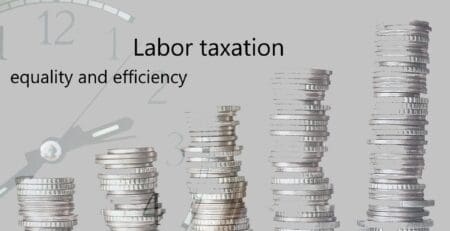Quantitative Easing and public debt of Albania
If the government implements a policy of balanced budget, but allows an increase in the deficit due to the inherited budget situation and in order to solve the invoice issued in the past about to pay obligations to its citizens, then the consequences in such case is to increase Interest rates and to influence to the raise of inflation rate in the medium term.
In the case of study of the impact on a giant economy like the U.S., Gale and Orszag (2004), presents the conclusion that for every expected percent of increase of budget deficit by increasing the public debt, the trend of rising interest rates ranging from 25 up to 35%. Alper and Forni (2011) present another fact, that for every 1% increase in the public debt to GDP ratio, the reaction of interest rates will be at 1 to 7 percentage points.
The supply with new money is closely linked to the budget. The deficit, unless accompanied by a change in deposits of Bank of Albania (BoA), can indirectly affect the trend of interest rates. Citizens, commercial banks and the BoA can respond to interest rate changes in ways that may affect the currency. The budget deficit, maybe cannot be covered by the government if investors are not willing to bear it, even if interest rates are not increased yet.
The reason for the lack of desire to keep the burden of national debt from them is affected by the fact that they maybe cannot be convinced by the performance of the government in maintaining budgetary commitments for the settlement thereof, or when they see the government make a shortcut by asking the BOA to issue fresh money in circulation over several years. In this way, Albania cannot continuously increase its debt levels exceeding the levels of economic growth. If this happens, then it would be expected the leaving of investors and their departure from Albania, as they will not want to be carriers of a higher burden of tax.
But, they also do not want to live an increase in inflation rate, which will be dictated by the dumping of money in circulation in a prolonged and uninterrupted way. Investors, at best, can accept large deficits for 1 year or a few years to the extent that will be linked to the real government commitments amounting to convince the public debt has obvious signs of his decrease in a future period.
Financing new money to budget
Numerous studies have analyzed the possibility of connection between the budget deficit and financing of the general price level, as funding is the main reason for inflation. One of the most essential issues in the formulation of financial policies is related to how to establish effective control of inflation, the money supply and the budget deficit.
Real format of the Albanian economy and monetary market today is situated in balance with the real level of currency in circulation. Given this balanced situation also the price level is checked by control of the money supply. Behind this monetary logic it lies BoA. But, when the budget deficit is higher than it is necessary an increase of the level of revenues collection, mainly based on the narrowing of tax evasion.
If performed issuance of money from BoA, in order to be paid with extra money the social debts (payments for the victims of comunism, payments for the owners of lands and terrains occupied by another peoples or civil works, not paid invoices for the past periods from government for work done from private companies etc.), then the new and fresh money into the hands of citizens and businesses need to be subject to review of the law of income tax because of taxing principles. All the subjects should have equal treatment before the law. All citizens of Albania, which will have new money as an extra income should have the tax treatment as the citizens that are taxed because of making profits from capital or work.
In case where fresh money issued into circulation shall be accompanied by other measures from BoA and Government, then it would be acceptable by investors as within the monetization budget process remains the solution of the most acute problems of new Albanian capitalist history. This situation is considered an extraordinary moment that holds within itself the same economic logic that carry economies after the solution of these national dramatic situations.
One way to determine to which extent of the public debt will be willing the investors to finance it should be if we can comparison the experience of countries with situations with very high public debt and how it was the solution in these practices. If we find similarity of Albania with these countries about the natural resources and human induced in use, and also how they have used the monetization policy and how it is the tax performance. If we can analyze the tax performance, it is important to see the strategy of increasing the revenues narrowing evasion and broaden the base and not increasing the tax burden for compliant taxpayers.
Money supply policy should be expansionary and in introverted cycle. Fiscal policies need to dominate monetary policy. Prior to initiating the policy of payment of property rights etc., it should happen the economic analysis and real growth trends in the medium term. In order to control inflation, so in the same line the money supply should be checked. Every indicator of money supply (aggregate M1, M2, M3 and so on) should not be calculated as a simple sum of indicators, but through comparability should be oriented the fiscal policy to enhance the effectiveness of the budget.
Implementation of the policy that assumes issuing new money by BoA which will be oriented directly to the citizen who has a property legal right problem, or to other citizens/businesses considered as social debts for the Government should definitely be a strong commitment and unprecedented until now by the country’s budget. BoA is unable to carry out alone this process, as long as a strong element in entire process is the necessary fiscal policy for the entire period.
By channeling new money in the hands of citizens through their bank accounts, the possibility of increased consumption is expected. The main component of aggregate demand will increase. On the other hand, the increase of prices of goods and services will continue to increase investment, employment and wages in response to increased consumption and inflation.
Overt money financing?
Do we need to follow the rules or the monetary and fiscal good practices combined with the rules?
Let see some key explanations that need to be taken carefully, if will be decided to apply this strategy.
What about the theories of helicopter money or overt money in circulation?
– It represents the best combination of monetary and fiscal policy and having as an essential condition the strong coordination and accurate of fiscal and monetary authorities;
– Suits to the current situation where we have a very low interest rate, high public debts and liquidity shortages are present;
– There will be no impact on the increase in interest rates, demand for loans from the government and will not affect the programs of investment in the economy. Also there will be no effects as prescribed by Ricardian Equivalence.
– It can be implemented by BoA and the MoF together providing a controlled and effective implementation in the economy, finance market and society;
– It cannot create a situation similar to the period of financial crisis in the US and Europe (asset price bubble). If inflation begins to rise beyond the objectives set, then remove excess money from circulation. But this step may be needed in subsequent periods, as land becomes supersaturated by money put into circulation.
Given the fact that monetary policy implemented until now does not apply to this new way of monetary policy, due to the lack of effectiveness with the ordinary instruments, then it must convince the Parliament that the reduction of the budget deficit should not be a priority within a political mandate. Trying to adjustment and deficit reduction within a mandate might be a good idea as long as the fluctuations of liquidity in the economy will not occur or will be with peripheric influence.
Under the quantitative easing policy and with the application of financing tools as above, the central bank wins (after deducting the interest paid on treasury bills), as well as budget wins.
So, the budgets of all the parties remain the same as if not actually purchased treasury bills, just as is the case with the issue of the new currency in circulation combined with other forms of deficit financing.
The injection of large volumes of new money in the private sector and citizens is not an important stimulant for economic growth, besides the impact on consumption growth. But with the growth of consumption will have an increase of acceptable prices of goods and services to the private sector, which are as a result of the increased supply level to 3-4% of GDP of money in circulation. It jumps of money in circulation more than necessary and is unbalanced by the offer of goods and services that are on the market. In this way, money issued into circulation would need to have effective control of the government to be directed towards productive expenditures, such as public market of assets, creation of participation in concession contracts secure and profitable orientation to Eurobond and looking to invest money in the world markets which require investment of significant funds.
On the other hand, the establishment of a specific regulatory framework and fiscal policy and adoption of the agency, which will specifically examine the process. The mission will be by focusing on the one side to the money which will be added into circulation with the options granted to profit. And on the other side should not create opportunities for concentration and enrichment of individuals most adapted to such projects who know the ways how to benefit from cash circulations.




Leave a Reply
You must be logged in to post a comment.